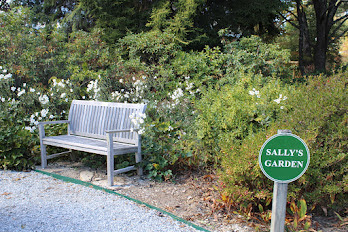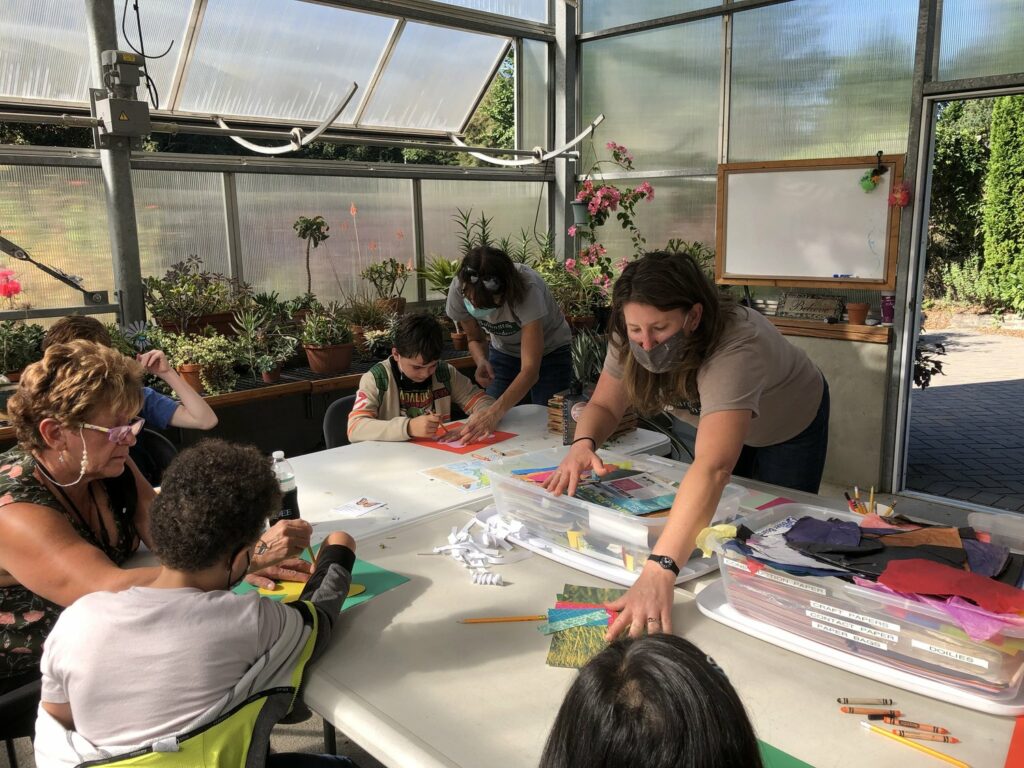Horticulture Therapy at Bullington Gardens
go.ncsu.edu/readext?1020412
en Español / em Português
El inglés es el idioma de control de esta página. En la medida en que haya algún conflicto entre la traducción al inglés y la traducción, el inglés prevalece.
Al hacer clic en el enlace de traducción se activa un servicio de traducción gratuito para convertir la página al español. Al igual que con cualquier traducción por Internet, la conversión no es sensible al contexto y puede que no traduzca el texto en su significado original. NC State Extension no garantiza la exactitud del texto traducido. Por favor, tenga en cuenta que algunas aplicaciones y/o servicios pueden no funcionar como se espera cuando se traducen.
Português
Inglês é o idioma de controle desta página. Na medida que haja algum conflito entre o texto original em Inglês e a tradução, o Inglês prevalece.
Ao clicar no link de tradução, um serviço gratuito de tradução será ativado para converter a página para o Português. Como em qualquer tradução pela internet, a conversão não é sensivel ao contexto e pode não ocorrer a tradução para o significado orginal. O serviço de Extensão da Carolina do Norte (NC State Extension) não garante a exatidão do texto traduzido. Por favor, observe que algumas funções ou serviços podem não funcionar como esperado após a tradução.
English
English is the controlling language of this page. To the extent there is any conflict between the English text and the translation, English controls.
Clicking on the translation link activates a free translation service to convert the page to Spanish. As with any Internet translation, the conversion is not context-sensitive and may not translate the text to its original meaning. NC State Extension does not guarantee the accuracy of the translated text. Please note that some applications and/or services may not function as expected when translated.
Collapse ▲Horticulture Therapy at Bullington Gardens
Horticultural Therapy (HT) engages people in gardening and plant-based activities to promote well-being and rehabilitation. A growing body of research shows that HT provides many physical, mental, and emotional benefits. Bullington Gardens uses HT to improve the lives of both children and adults in our community.
Based in the therapy garden and greenhouse, this program offers plant-based activities to Henderson County Public Schools students with special needs as a means of skill development, rehabilitation, and wellness. Students tend their own gardens, make nature crafts, and enjoy the gardens and grounds on a weekly basis.
Bullington Gardens’ trained Horticultural Therapists also work with clients at three behavioral health facilities in our area, as a complementary therapy to enhance recovery and rehabilitation, help clients build new skills, and provide opportunities for joy and creative expression.
What is horticultural therapy?
”Horticultural therapy techniques are employed to assist participants to learn new skills or regain those that are lost. Horticultural therapy helps improve memory, cognitive abilities, task initiation, language skills, and socialization. In physical rehabilitation, horticultural therapy can help strengthen muscles and improve coordination, balance, and endurance. In vocational horticultural therapy settings, people learn to work independently, problem-solve, and follow directions. Horticultural therapists are professionals with specific education, training, and credentials in the use of horticulture for therapy and rehabilitation.” – American Horticultural Therapy Association
Our Horticulture Therapy Programs with Henderson County Public Schools
BOOST:
• Population: 10th grade students in HCPS Occupational Course of Study
• Goal of the Program: Teach vocational skills through working in the garden and designing garden beds.
Life Skills Class:
• Population: High school students (ages 13-21) in the Intensive Intervention classrooms through HCPS.
• Goal of Program: Provide positive social interactions; improve fine/gross motor skills.
Our Horticulture Therapy Programs with Other Organizations
Residential Onsite Program:
• Population: Adolescents in recovery from eating disorders and co-occurring mental
health issues.
• Goal of the Program: Provide therapeutic sessions that aid their recovery.
Residential Offsite Program:
• Population: Women in recovery from eating disorders and co-occurring mental health issues.
• Goal of the Program: Provide therapeutic sessions that aid their recovery.
Retirement Community:
• Population: Independent Retirees; individuals in assisted living with chronic health
conditions.
• Goal of the Program: Build community and aid in increasing quality of life/decrease stress.
Why Horticulture Therapy
Research often focuses on individuals with disabilities, older adults in assisted living, and those with mental health disorders. While more research is needed in the field, general consensus is that HT:
– Helps reduce depression and anxiety
– Provides social opportunities and increases feelings of well-being
– Helps improve gross and fine motor skills
– Improves quality of life
– Decreases stress
Observations from the garden:
- Increased self-esteem over time
- Increases socialization among often isolated groups
- Decreased anxiety
- Improved communication
- Creating a connection to each other and the world around them
- Improved emotional regulation






